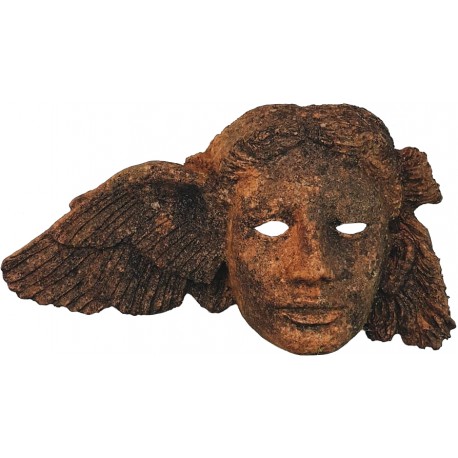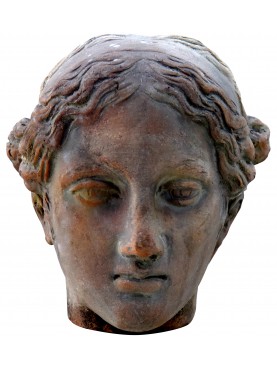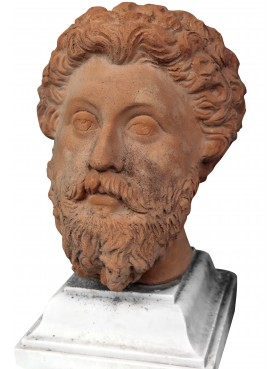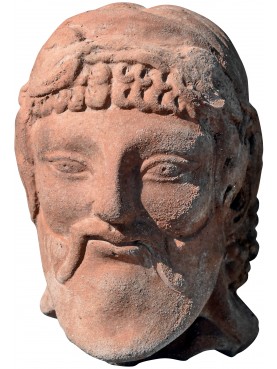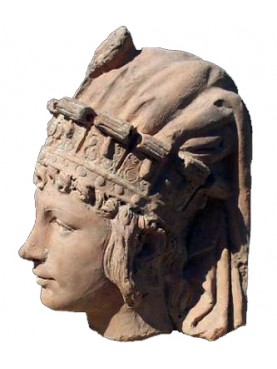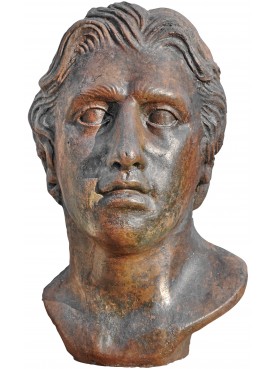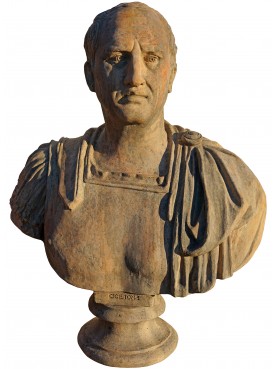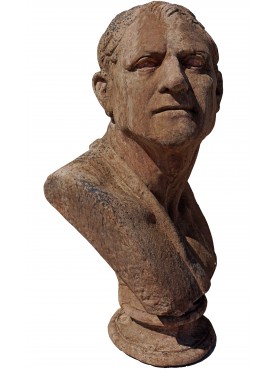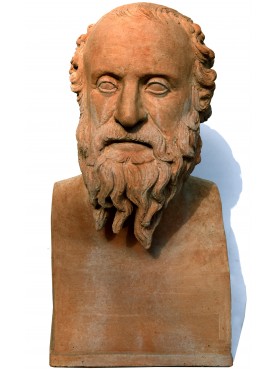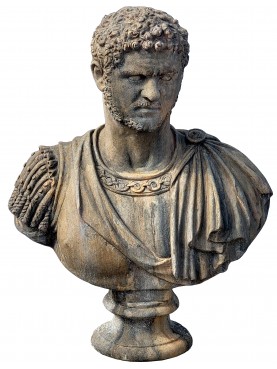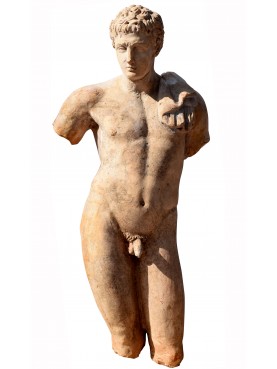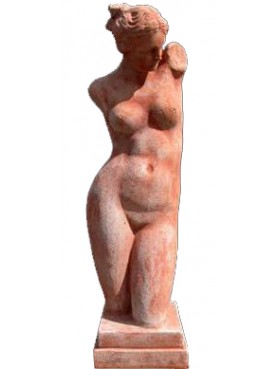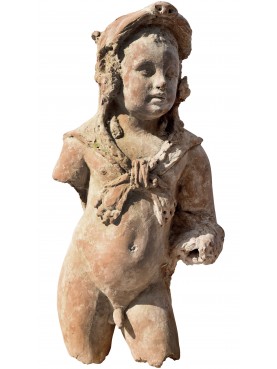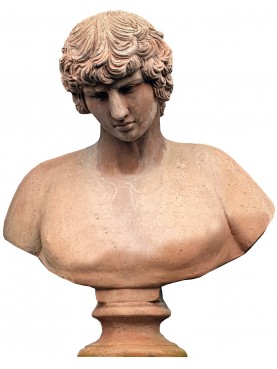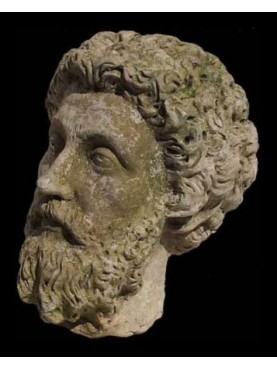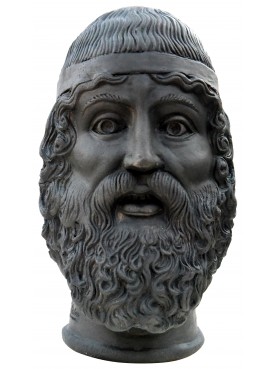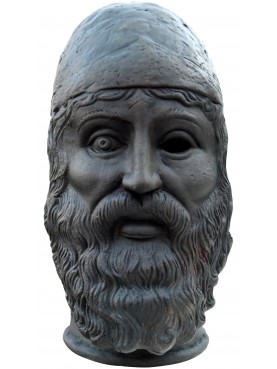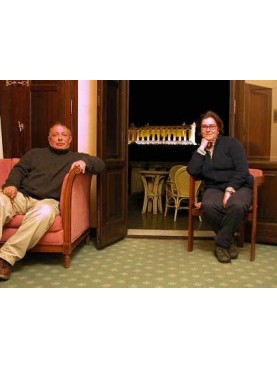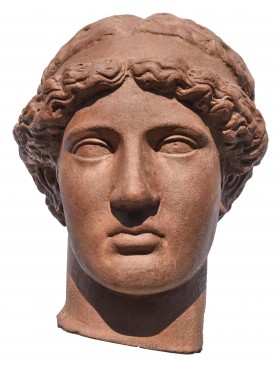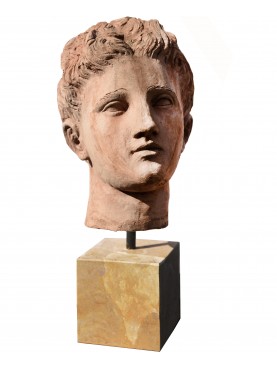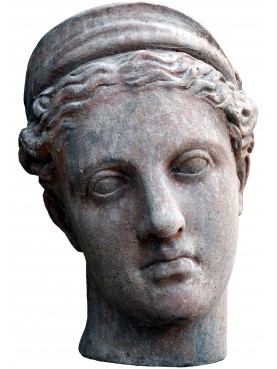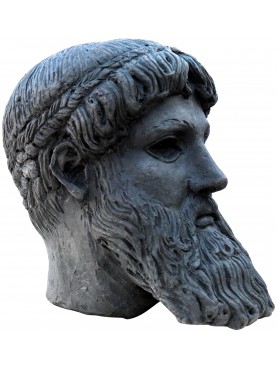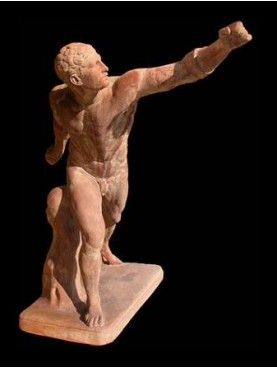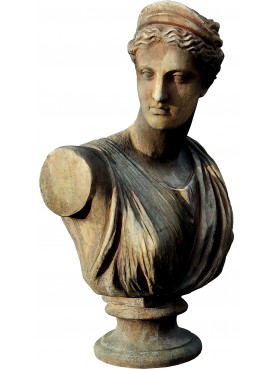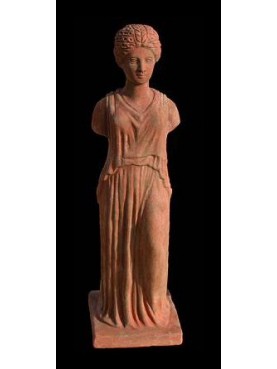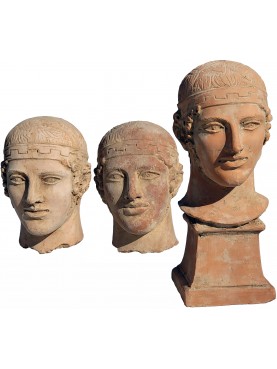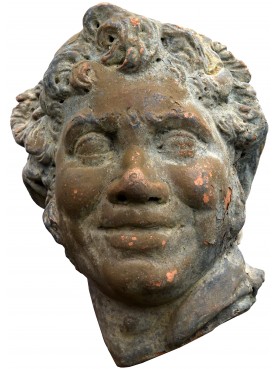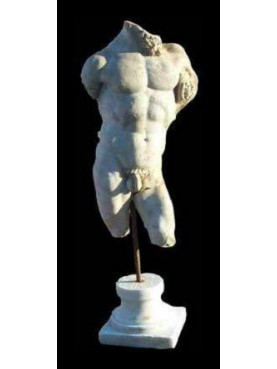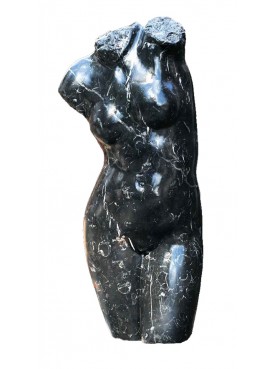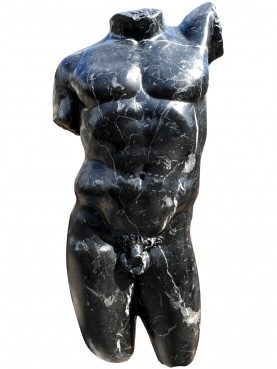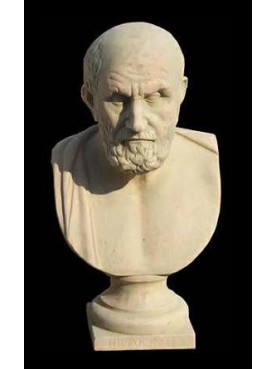Hypnos mask in terracotta Personification of sleep
Hypnos mask in terracotta Personification of sleep
13476
New
Copy in terracotta of the original of the British Museum head.
Inventory number of the British Museum 1868,0606.9.
Ages between 350 BC and 200 BC. of unknown origin Greek or Roman.
This specimen was found in Italy in Civitella d'Arno in Umbria, in the province of Perugia.
It was bought by the British Museum in 1968 by Mr Alessandro Castellani.
2 Available
Warning: Last items in stock!
Data sheet
| Height | 8.27 in | 21 cm |
| Width | 15.35 in | 39 cm |
| Length | 12.99 in | 33 cm |
| Depth | 4.33 in | 11 cm |
| Weight | 6.61 lbs | 3 Kg |
| Artist / Creator / Architect | Greek Epoca 5th/4th century b.C. | |
| Diameter of the base | 5.12 in | 13 cm |
| Manufacturing | Recuperando srl | |
| Material | Terracotta | |
| Museum cataloging number | British Museum Inventory number 1868,0606.9. |
More info
The Bronze Head of Hypnos is a Roman copy of an ancient Greek statue found at Civitella d'Arna near Perugia in central Italy. Only the head of the bronze statue is extant. The face shows wings emerging from his right temple and elaborately woven locks of hair held in by a head band. As the god of sleep, the intact statue would have shown the deity walking forwards, clutching a drinking horn and poppies in his hands. Sculptural images of Hypnos are unusual, and only a handful of similar statues are known in Western Europe.
In Greek mythology, Hypnos (/ˈhɪpnɒs/; Greek: Ὕπνος, "sleep") is the personification of sleep; the Roman equivalent is known as Somnus. His name is the origin of the word hypnosis. Hypnos is the son of Nyx ("The Night") and Erebus ("The Darkness"). His brother is Thanatos ("Death"). Both siblings live in the underworld (Hades) or in Erebus, another valley of the Greek underworld. According to rumors, Hypnos lived in a big cave, which the river Lethe ("Forgetfulness") comes from and where night and day meet. His bed is made of ebony, on the entrance of the cave grow a number of poppies and other hypnotic plants. No light and no sound would ever enter his grotto. According to Homer, he lives on the island Lemnos, which later on has been claimed to be his very own dream-island. He is said to be a calm and gentle god, as he helps humans in need and, due to their sleep, owns half of their lives. -Wikipedia

